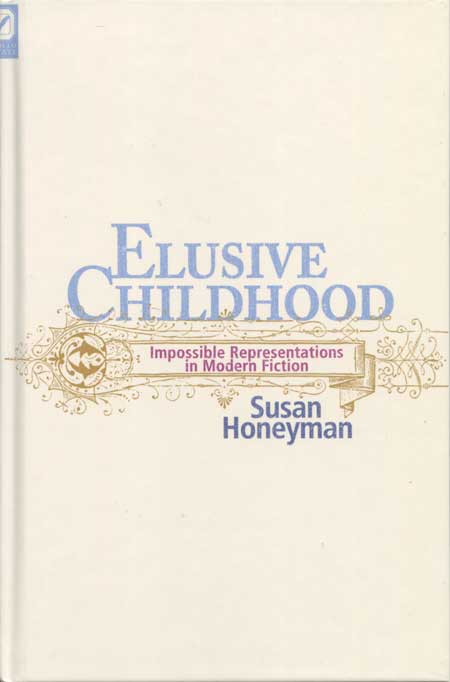|
A Choice Outstanding Academic Title for 2006 Elusive ChildhoodImpossible Representations in Modern FictionSusan Honeyman |
 7/22/2005 Literary criticism/American; Literary criticism/Children's literature; Social science/Popular culture 184 pp. 6x9  $52.95 cloth 978-0-8142-1004-8 Add cloth to shopping cart $24.95 Paperback 978-0-8142-5488-2 Add Paperback to shopping cart Shopping Cart Instructions Review/Change Shopping Cart & Check-out | |||
|
“Honeyman’s work is the first study to take full advantage of scholarly work in children’s literature and childhood studies. Honeyman writes beautifully, and her arguments are sophisticated yet clear. I highly recommend this book.” —Richard Flynn, Georgia Southern University “Honeyman opens up the study of children’s literature in ways that it needs to be opened, and in doing so she makes a superb contribution to the field. I especially appreciate how the focus on children studies cuts across traditional boundaries, no longer fencing children’s literature off from that for adults.” —Beverly Lyon Clark, Wheaton College Elusive Childhood examines how discourse touched by the identity politics of youth might be revised for fairness. Susan Honeyman demonstrates this potential by reading representations of children from throughout the Modern episteme in works of such writers as Henry James, Edith Wharton, and James Baldwin. Identity politics have changed the way we classify literature by opening up the canon, but they have also changed the way we approach literature. We’ve learned to recognize that biology is not destiny—sex doesn’t necessarily determine gender or orientation, nor do fictitious absolutes like blood ratios measure ethnocultural identity, and so in an effort to avoid false generalizing about “others” we endorse individual self-representation, all the while recognizing how society constructs us. But when it comes to representing the position we call childhood, there is little opportunity in legitimated discourse for children’s self-representation and inadequate attention to social constructedness. Recognizing political inequity in literary representations of children, Honeyman proposes a method of reading child figuration in relief to impose as little adult prejudice as possible. This might be impossible for adults, yet it is necessary to attempt. Susan Honeyman is assistant professor of English in the Department of English at the University of Nebraska–Kearney. | ||||

